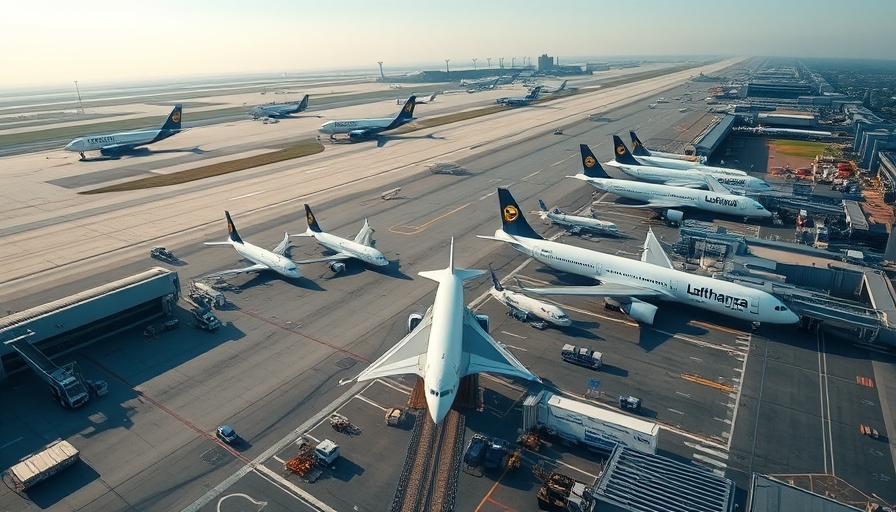
Fraport's Cargo Growth and Its Importance for East Africa
Frankfurt Airport has seen a significant rise in its cargo volumes, handling 179,055 metric tons in July alone, marking a 3.7% increase compared to the previous year. This growth is particularly important for East African traders who rely on efficient logistics to connect with Europe. Notably, Frankfurt serves as a crucial hub for air-freight transport of perishable goods, textiles, and other industrial products, making this development a boon for exporters and importers alike.
The Rising Demand for Air Trade Routes
As global demand for seamless trade routes increases, East Africa has emerged as one of the regions experiencing burgeoning air trade. The increase in Frankfurt's flight activity, with over 42,657 takeoffs and landings, presents African shippers with enhanced options for accessing European markets. With reliable airlinks, this ought to ease the challenges often faced by African exporters in maintaining freshness and timely deliveries of their products.
Building a Sustainable Supply Chain through Logistics
The rise in cargo volume and flight operations at Frankfurt doesn't just reflect business growth — it signifies a pivotal moment for the entire African supply chain. The sustained capacity for air freight through this key European airport fosters reliability and efficiency, essential for African businesses aiming to compete in international markets. This connection strengthens trade ties and opens new pathways for a more sustainable logistic framework between Africa and Europe.
Looking Forward: Opportunities for African Airports
With the current trends highlighted by Fraport, African airports are positioned to elevate their roles in global trade. By expanding partnerships and investing in infrastructure, these airports can enhance their operational capabilities, further supporting regional economies. This focus on enhancing air trade underscores an essential aspect of the burgeoning African market—its potential to become a significant player in global logistics and supply chains.
As stakeholders within the aviation and logistics industries observe these developments, it’s clear that efficiency in air freight is paramount. African traders must leverage this momentum to explore innovative solutions that address logistical challenges while fostering international partnerships. This is not just an opportunity for businesses; it’s crucial for fostering economic resilience in the face of global trade dynamics.
 Add Row
Add Row  Add
Add 




Write A Comment